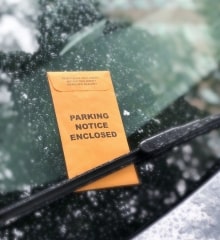What Amount Does Georgia Bankruptcy Allow For Cram Down
Typically, when you file for Chapter 13 bankruptcy in Georgia, your secured creditors must agree to the reorganization plan. However, an allowance in Georgia bankruptcy law called "cram down" permits you to discharge the unsecured parts of secured debts such as auto loans without the creditor’s approval.
If you are considering filing for Chapter 13 in Georgia, this tool can be used to drastically reduce the total amount you owe to your creditors. As a bankruptcy law firm, DebtStoppers can guide you through the entire Chapter 13 process, including cram down and other complicated debt relief measures.
What Is Cram Down?
Cram down occurs when a court imposes a repayment plan over the objections of creditors as part of a Chapter 13 case. Through this process, the court can help you change the terms of your contract with the creditor to decrease the amount you owe to the fair market value of the collateral used to secure the loan. For example, if you owe $10,000 on a car that is worth $6,000, the amount of the secured loan can be reduced to $6,000.
The primary purpose is to reduce the amount owed on secured debts like a car or other personal property. A secured debt is any debt where the lender receives a security interest in the property purchased and can repossess it if the borrower falls behind on their loan payments.
How Can Bankruptcy in Georgia Help You?
The most common scenario in which a cram down can be applied is when you owe more on an auto loan than the car is actually worth. In this situation, you could decrease your debt to an amount that reflects the rapid depreciation that occurs with most vehicle purchases.
Although this strategy cannot be used to reduce mortgages for homes that are used as primary residences, other real estate loans can be crammed down. For example, you could benefit if you purchased an investment property during peak market conditions and the value has since declined.
What Are the Restrictions on Cram Down?
Congress has placed restrictions on when debtors can use this tool in order to prevent people from intentionally purchasing cars or other personal property they can’t afford right before filing. In order for personal property to qualify, a minimum period of time must have passed
since it was purchased. The waiting period depends on the type involved: 910 days for vehicles and one year for other kinds of personal property. If the minimum time period has not passed, you’ll have to pay the full amount of debt you owe.
The skilled legal team at DebtStoppers has helped thousands of Georgia filers negotiate lower car payments and decrease their other secured debts through cram down. Call or text DebtStoppers today at 678-673-2142 to schedule a free consultation with one of our experienced Atlanta lawyers.


